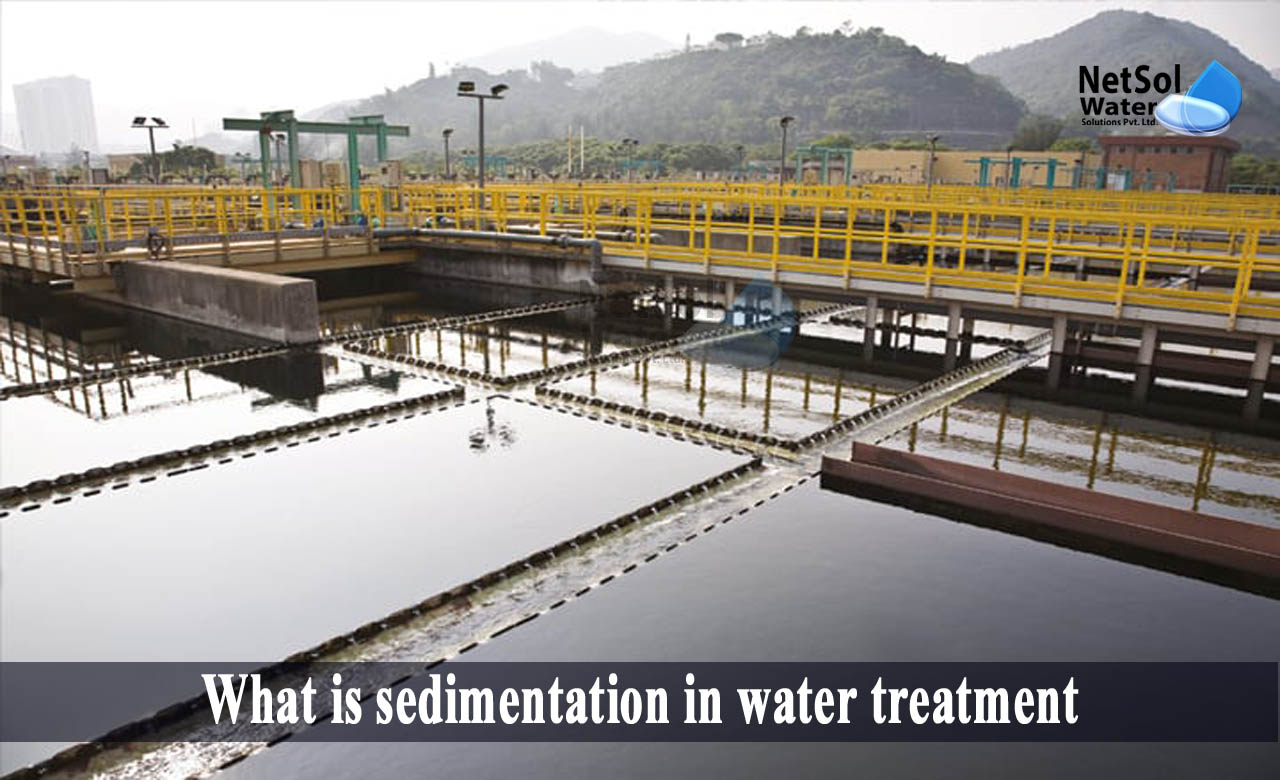Sedimentation is a method for getting rid of solids in the water that float and settle. Larger particulates are removed from the process using sedimentation tanks.
Sedimentation may be followed by further treatments. It's critical to comprehend how drinking water and wastewater are treated, via sedimentation.
What is sedimentation in water treatment?
Municipalities use a variety of water treatment techniques, one of which is sedimentation. It is a physical method of treating water, in which water suspended solids are removed by gravity.
The size and weight of the particles affect the efficacy. While, heavier particles fall, suspended solids with a specific gravity close to water stay suspended. Typically, tanks of various forms are used for the sedimentation process in water and wastewater treatment.
What are the benefits of sedimentation in the treatment of water and wastewater?
As one of the most fundamental methods of water purification, sedimentation is widely used and understood all over the world. In some water treatment procedures, it might serve as the first stage.
The following are the advantages:
· Following sedimentation, the subsequent water treatment process requires fewer chemicals.
· It simplifies any following procedure.
· The price is lower.
· Less variance exists in the water's quality as it passes through the procedure.
What is the process of sedimentation?
Particles are removed from the water in a sedimentation tank during treatment. Sludge, also known as accumulated solids, builds up at the sedimentation tank's bottom and is periodically removed.
Before sedimentation, coagulants are frequently added to the water to speed up the settling process. Other treatment measures are frequently taken after sedimentation.
Principle of sedimentation
1: Firstly, when the amount of suspended particles is low, the particles settle with little influence from one another. Adjacent particles gradually influence, or hamper, one another's behaviour when particle concentration rises over 1%.
2: Secondly, the suspension is in the fully impeded phase when particle concentration exceeds 8%. Now, the volumetric concentration of the suspended particles as well as other particle characteristics, affects the suspension's characteristics. The degree of particle interaction gradually increases, with increasing particle concentration.
3: Thirdly, there is a change in the suspension's appearance when the particle concentration is around 18% (volume-to-volume). The upper interface between the water and suspension should be distinct for concentrations, larger than around 18% v/v. The interface is diffuse at concentrations below about 18%, and becomes more diffuse as concentrations decrease.
4: Fourthly, the suspension enters the thickening regime when the particle concentration reaches about 26% v/v, because nearby particles come into constant touch with one another.
5: Lastly, water treatment uses suspensions with concentrations between 12 and 22% v/v, for hindered settling. A floc blanket, which is a fluidized bed, is a suspension in this range.
Types of sedimentation
Sedimentation can be applied using a number of different techniques, such as horizontal flow, radial flow, inclined plate, ballasted floc, and floc blanket sedimentation.
Conclusion
When sedimentation is used to treat wastewater, a secondary treatment is utilized to remove soluble contaminants with microorganisms, such as a trickling filter, activated sludge, or another purification procedure, for much more effective treatment.
Choosing the best manufacturers of water treatment plants in India
Netsol Water is one of the top producers of water treatment systems in India. At Netsol, we are committed to providing high-performing treatment plants, to assist enterprises with their water treatment requirements.
We have earned a reputation for providing top-notch service and solutions, which will help our clients lower operating expenses and increase the life of their equipment. Every purchase of these systems includes installation, manufacturer's warranty, and a 24-hour customer service, after the sale.
Netsol Water is Greater Noida-based leading water & wastewater treatment plant manufacturer. We are industry's most demanding company based on client review and work quality. We are known as best commercial RO plant manufacturers, industrial RO plant manufacturer, sewage treatment plant manufacturer, Water Softener Plant Manufacturers and effluent treatment plant manufacturers. Apart from this 24x7 customer support is our USP. Call on +91-9650608473, or write us at enquiry@netsolwater.com for any support, inquiry or product-purchase related query.



